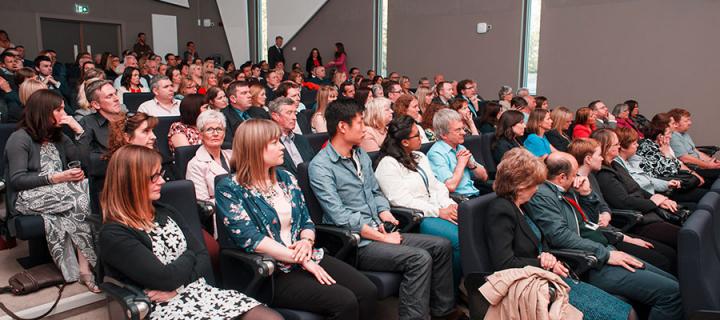Ovarian cancer research centre seeks to develop better treatments
Women with ovarian cancer will benefit from a new research centre: 16 May 2016

Women with ovarian cancer will benefit from a new research centre aimed at improving diagnosis and treatment of the disease.
The Nicola Murray Centre for Ovarian Cancer Research will seek to advance understanding of the different types of the disease so that patients can be offered the most effective treatment for their specific condition.
The unit is being established at the University of Edinburgh with generous support from the family and friends of Ms Murray, who died from the condition in 2010 at the age of 34.
Scientists, led by Prof Charlie Gourley, will investigate the biological differences between types of ovarian cancer and how they affect patients’ response to treatments. Some forms of ovarian cancer – such as the one Ms Murray had – are particularly aggressive and hard to treat. The team will focus on understanding how these types of tumours grow and why some forms of the disease respond better than others to medication. Researchers hope this will help develop new treatments that can tackle even the most resistant forms.
Ms Murray, a speech and language therapist from Dunfermline, died less than four months after her diagnosis. She had a rare and aggressive form of the disease – known as HNPCC-associated ovarian cancer – which is caused by a fault in one of the genes that normally suppresses tumour growth.
The Nicola Murray Foundation was set up in her memory as a means to perpetuate the care and concern that she showed to others in her life. Over the past six years, it has raised more than £200,000 to fund research into ovarian cancer.
The symptoms of ovarian cancer can be difficult to recognise as they are often the same as those of other less serious conditions, such as irritable bowel syndrome (IBS) or pre-menstrual syndrome (PMS). However, three main symptoms are more frequent in women diagnosed with ovarian cancer: abdominal swelling or bloating; pelvic or abdominal pain and feeling full quickly.
“We are extremely grateful to Nicola’s family and friends for supporting our research so enthusiastically and for allowing us to set up our Ovarian Cancer Research Centre in her name. We believe that this centre will help us develop new strategies to more effectively target the specific abnormalities in each patient’s cancer and thereby improve the outcome for patients with this terrible disease.”
Professor Charlie Gourley, Director of the Nicola Murray Centre for Ovarian Cancer Research at the University of Edinburgh
“When Nicola learned that the treatment pathways for her ovarian cancer were under-researched, she began planning ways for her family and friends to fundraise for better research. She was determined that no other young women should go through what was happening to her and knew that new research into treatments would bring hope and light to other young women on their ovarian cancer journey. She could never have imagined that there would be a charity – let alone a research centre – in her name, but she’d be so honoured, as we all feel.”
Caroline Turnbull, Nicola’s sister and co-founder of the Nicola Murray Foundation

